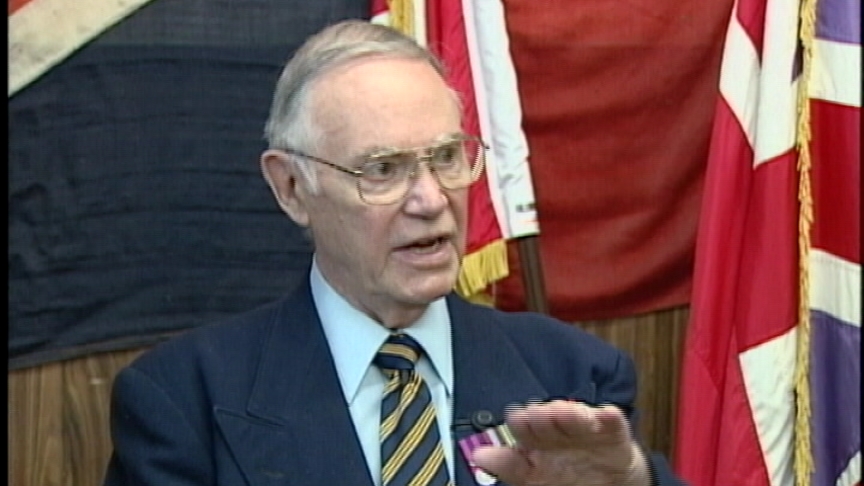Canton Prison - Worse
Heroes Remember
Canton Prison - Worse
Deplorable. Deplorable. Now Stanley Prison wasn't a very great
place admittedly, but Canton, it was just strictly deplorable.
Both the accommodations, the cells, and the conditions
generally, and the food. It was just absolutely deplorable.
Interviewer: Were you confined in your cell or were you allowed
to work?
We were confined to the cell, we had no work to do, we were
permitted to go out maybe once or, every two or three days to
wash out of a basin that they provided us with, but that was,
that was it. We did not work, no. We had to sit and face the
wall entirely all day long.
Interviewer: During this period of time, did you receive any
medication for the various diseases that you men were....
No.
Interviewer: What do you remember about the Japanese guards that
were there at Canton Prison?
They were extremely cruel also. Again, they had quite a number
of Chinese prisons, prisoners and they certainly, I shouldn't
say treated, mistreated the, the Chinese, but they gave us the
same sort of treatment, in fact, for a year. If we were caught
doing something that they thought we shouldn't be doing or
standing up instead of sitting or sitting down with our knees
crossed or, you know. But no, they were, they were pretty cruel.
Related Videos
- Date modified:




